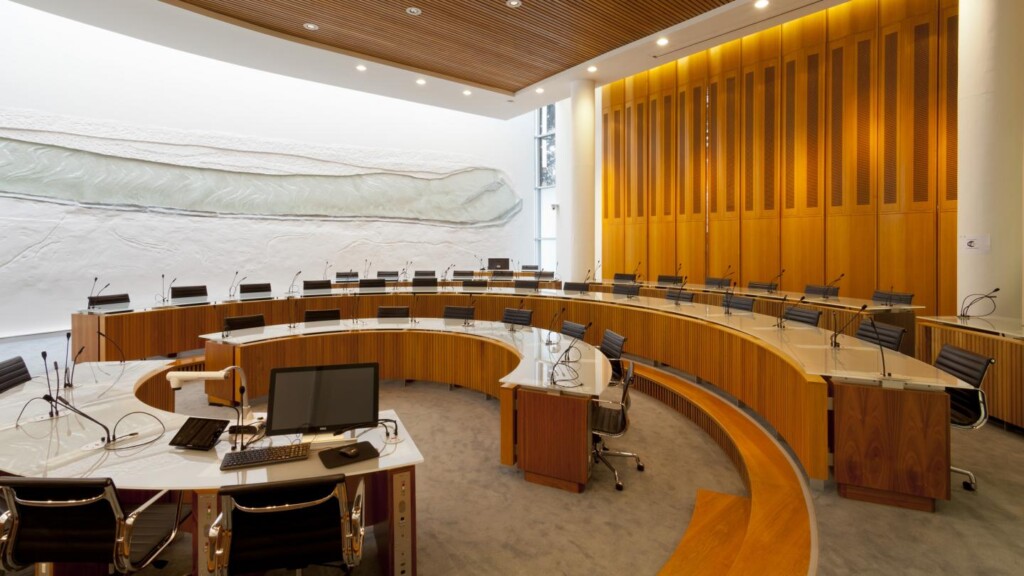Labour has been accused of teaming up with Fianna Fáil and Fine Gael on Fingal County Council instead of teaming up with other left-wing parties.
Fresh off a proposed left-wing alliance on Dublin City Council collapsing, it appears that Labour will follow suit on Fingal County Council despite an invitation from the Social Democrats, Sinn Féin, the Greens and left-wing independent councillors to form a coalition.
In a document seen by Northside People, Labour would have been given 2 of the 5 available mayoral slots between 2024 and 2029, with Sinn Féin given one, the Social Democrats, Greens and the independents given one each.
21 seats are needed for a majority on Fingal County Council – a Labour, Sinn Féin, Social Democrats, Solidarity and Green coalition would have 17 seats, before independents are brought on board.
Labour had its best set of election results since 2009 on Fingal County Council,
Social Democrats councillors Paul Mulville and Joan Hopkins believe that Labour has formed an alliance with Fianna Fáil and Fine Gael ahead of today’s meeting of Fingal County Council.
They have called for Labour to join the progressive alliance.
A Fianna Fáil, Fine Gael and Labour grouping on Fingal County Council would have 20 seats.
Hopkins said “after elections, ruling groups of Fingal County Council members have always divvied up Mayors & Chairs in secrecy, in advance of the inaugural council meeting of the new term. Some progressive councillors saw an opportunity to change this and engaged with other progressive/left-wing councillors to work on a policy-led ruling arrangement that transparently outlined the division of chairs and committee roles from the outset.”
“However, as is the case with Dublin City Council, it looks inevitable that the Labour Party in Fingal will instead opt to throw in their lot with the same old approach with Fine Gael and Fianna Fáil, neglecting to share any policy agenda or transparency in division of sought-after appointments.”
Hopkins said “it is our understanding that Labour will win the mayoral vote today, at today’s inaugural council meeting, with Fine Gael and Fianna Fáil’s secretive pact support.”
She stated “for over 30 years on Fingal County Council, these “control groups” have been a mix of Fine Gael/Labour/Fianna Fáil, & sometimes Greens or Independents, never revealing their governing agreement for public scrutiny. Secret back-room deals never serve the public interest, instead they allow the establishment parties to “rule the roost” in terms of key paid appointments across the council.”
“Following the recent local election, there was a strong push to have an open, democratic, and policy-led progressive ruling group, that put transparency first, with sufficient numbers between the Labour Party (7 seats); Sinn Féin (4 seats); Solidarity/People Before Profit (2 seats); the Social Democrats (2 seats); the Green Party (1 seat); Independents for Change (1 seat); and a number of progressive independents to create the required majority.”
Mulville said “a comprehensive policy-agenda was drafted, and shared with left-wing parties, with Independents4Change Cllr. Dean Mulligan leading efforts to bring progressive councillors together. If agreed upon, this document would have marked the first time a control group published an agreement outlining how they would fulfill their mandate given to them by the electorate. This document (attached), consisted of asks from each party’s local election manifestos and outlined key priorities on Climate & Biodiversity Action; Housing; Transport and Active Travel; Arts, Heritage, Recreation and Sports; Accessibility and Community Safety; Waste Litter and Pollution and Global Solidarity.”
“We had hoped that as part of a potential agreement, the key roles of Mayor, Deputy, Area Chair, would have been allocated objectively and proportionately on the basis of the number of seats per party/groupings, like in other local authorities. Notwithstanding this, the current system of ceremonial “Mayors for a year” needs to go and instead we need to see directly elected executive mayors with real power, and a proper five-year term to see through a policy programme.”
Mulville added “for the first time in Fingal County Council’s history, there was an opportunity for transparency and openness for the people of Fingal, who rightly demand the very best of their councillors, as to what the basis of the political groupings in the Council Chamber taking decisions.”
He confirmed that Labour did take part in initial informal discussions to form the progressive grouping on Fingal County Council and gave “some consideration” to the draft policy document, but said that Labour “balked” at holding a more formal meeting with potential partners to discuss policy details and work towards a joint agreement.
“There is no question that they had a great election in Fingal, however does another pact with establishment parties meet the expectation for Labour voters? It appears that the public pleas from Labour leader, Ivana Bacik, calling for greater cooperation between centre-left parties, has been further exposed as empty rhetoric when put to the test.”
“However, it’s not too late for them to join the call for a policy-led progressive alliance in advance of today’s meeting,” he said.
